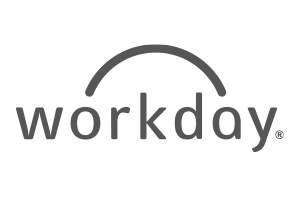Can you remember the days when working from home was a luxury, second only to the blissful feels of a duvet day?
Nowadays the flexibility of a hybrid role is not only a desirable perk of a job, but a demand, as more and more people in FinTech feel it should be their right to work from home whenever they want.
But, the question is, what are the benefits of office-based and work-from-home working?
The Pros & Cons Of Office Based Working
When you think of a traditional office environment, it’s hard to skip past thoughts of British ‘mockumentary’ sitcom, The Office, with its clock-watching workers and printing paper sound effects.
But, how much of those dry, “is it home-time yet?” scenes are actually true to real life?
Well, probably most of them…
But, What Are The Pros Of Office-Based Working?
It comes down to 4 key areas:
Culture: We suppose the question is here…how can you realistically build a culture in a room on your own? It’s much easier to create a synergetic atmosphere among workers if everyone’s in the same office.
Time Management: “Set work hours, a defined schedule, even a designated desk and workspace can all ease the transition and satisfy a need for order. When working from home, the time available to complete tasks may feel endless. The office provides more enforceable and globally understood deadlines and expectations that can promote productivity.”
Productivity: Working from home can be downright distracting and fraught with challenges to getting things done. Coming back into the office can alleviate the burden of self-discipline and provide easier, ready-made structures for completing a to do list.
Networking: “There’s power in numbers, and that power isn’t just about collective decision-making: creativity thrives in collaboration. This has been hard, and sometimes impossible, to match through virtual meetings. Working in an office restores people’s ability to make meaningful connections that result in innovation.”
And The Cons?
The Dreaded Commute: “The grind,” for many people, includes a daily commute to work. Whether by car, carpool, train or bus, losing the time of a commute can cut into newly prioritized family commitments, hobbies, sports and more. This can feel like a loss, especially if your priorities have supported your wellbeing through the pandemic.”
Less Autonomy: “Part of being on a team in an office inevitably decreases your autonomy as a worker. For most of us, this means joint projects, collaborative efforts and even a more structured schedule. While this can be appealing if you’ve felt a major lack in this area, for other people, this represents a drawback to in office work.”
Shut up, I’m working: Being distracted by co-workers is a big disadvantage of office working, especially if you’re next to or near someone who just won’t shut up.
Exposure to illness: Need we say any more?
The Pros Of Working From Home
More Flexibility: if you don’t take the mick, your work can work around you, including seeing more of your family.
Fewer Distractions: While you may need to dial in for specific meetings, you’ll likely get a break from attending several others, including being distracted by chit-chat of your colleague’s weekend plans.
Work when you’re most productive: Other than essential meetings and immovable deadlines, chances are you can work during the hours you’re most alert!
No commute! Work where you want, live where you want, be where you want. True bliss.
And The Cons?
Distinguishing Between Work And Leisure: The absence of an obvious division between the personal and professional realms means some remote workers get distracted by housework. Setting boundaries and sticking to them is important when you’re working from home.
Misreading Electronic Comms: While few who work from home expressed feeling “lonely,” as is typically assumed, many did point to the difficulty of getting the tone right through digital communication systems, such as email, chat, social media and text. Without body language, facial expressions and other cues, remote employees have to put in extra effort to maintain positive communications.
Less Interaction, Banter And Perks: if you enjoy office-based camaraderie and like to be able to socialise with your team in person, then the remote life might make you miserable, especially if you love a bit of banter, or being treated to a pub lunch.
Office-Based Bias: If you’re not in the office and others are, some managers may be either intentionally or unintentionally biased against you. You may find that your contributions aren’t noticed or appreciated as much by your team and may feel compelled to make extra efforts to keep on everyone’s radar screen.
OK, So What’s The Answer?
In a word…hybrid.
Studies show that people are generally happier if they have the freedom to choose where they work, which, according to this neat little graph, is a mixture of both home and office…
Enagage With Us



















